Briefing on the UN Secretary-General’s High-Level Panel on Women’s Economic Empowerment by Ms. Fiza Farhan, Panel Member from Pakistan
Date:
[Press Release]
Islamabad, Pakistan – The inaugural meeting of the first-ever High-Level Panel on Women’s Economic Empowerment kicked off on 15 March 2016 during the 60th session of the Commission on the Status of Women in New York. Operating under the aegis of the UN Secretary-General, the panel intends to put women’s economic empowerment at the top of the international agenda, including by defining actions to speed up progress under the 2030 Agenda for Sustainable Development.
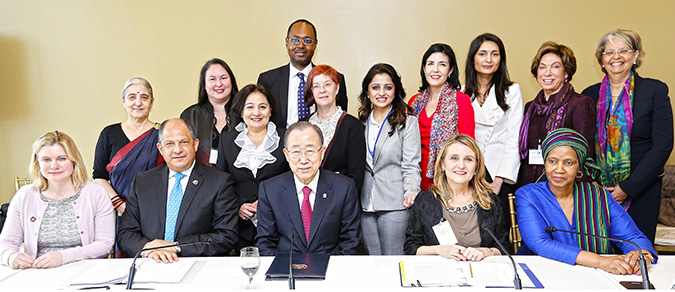
This global initiative, which the UN has called a “quantum leap” forward in the empowerment of women, aims to fully mobilize the untapped economic potential of half the world’s population.
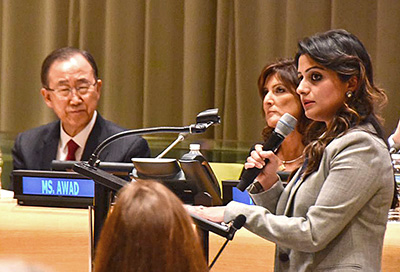
Speaking at the inaugural meeting, and during the 2016 Women’s Empowerment Principles Annual Event, the UN Secretary-General, Ban Ki-moon, highlighted that “When companies invest in women, they see a range of benefits and a return on investment. It is clear that gender equality is a business issue.” In acknowledging the presence and achievements of Pakistan’s Fiza Farhan, Ban Ki-moon said: “I am especially impressed to hear from a leader from the next generation: Fiza Farhan, a young female entrepreneur. I am proud to have her serve on my High-Level Panel on Women's Economic Empowerment. Ms. Farhan’s story is so important because she is part of the largest generation of youth in history. The Sustainable Development Goals are for them. We will never achieve these Goals without tapping into the energy, talent and expertise of young women and girls.”
UN Women, the United Nations Entity for Gender Equality and the Empowerment of Women, hosted a briefing session with Fiza Farhan in Islamabad, Pakistan on 29 March 2016 to present the outcome of some the deliberations at the global level with specific relevance to policy and programmatic interventions in Pakistan and the region more broadly.
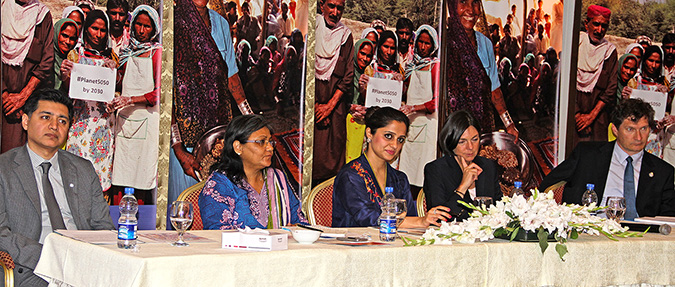
Neil Buhne, UN Resident Coordinator, Pakistan, congratulated Fiza Farhan on her role as one of eighteen High-Level Panel Members who will be providing innovative solutions to the challenges faced by women. In his remarks, Neil Buhne lauded the Government of Pakistan’s commitments to increase economic opportunities for women, and said: “Women’s economic concerns have been in the Government’s key planning document Vision 2025 which commits to elevate women’s labour force participation to 45 per cent [which currently lags 26 per cent behind the labour force participation of men].”
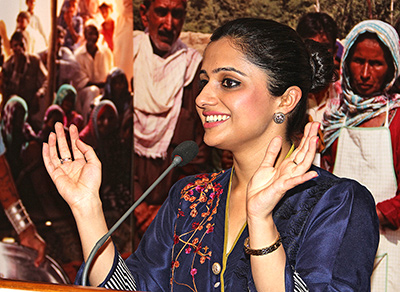
In her presentation Fiza Farhan shared a three-point agenda to: (i) Formalize informal women workers as formal workers including them in the formal labor force participation of the country; (ii) Incentivizing women to take up jobs in the private sector while also implementing the UN Women - UN Global Compact ‘Women Empowerment Principles’ in the leading corporate sector of Pakistan; and (iii) Inclusion of women in non-conventional sectors especially renewable energy and technology. Fiza also reiterated her call for action to tap into increasing opportunities within the world’s businesses and promote understanding of the fact that there is an established business case towards enhancing women economic empowerment with companies reporting 37 per cent higher Return of Equity and 28 per cent higher Return of Sales (Mckinsey Report), that have included women in leadership positions and in key decision making roles. She made a passionate urge to the Government of Pakistan to establish a ‘Women Empowerment Council’ within the federal and provincial constitutions leading towards the passing of a national bill on the theme of “Equality means Business”. Fiza also deliberated on the importance of taking academia on-board to establish mentoring and counselling systems for girls to make career choices, and called for investing time and effort in media houses to promote tailored and targeted social equality campaigns to bring about a positive change in mindsets and conservative cultural norms. Further, Fiza made the most important “Call for Action” to the women themselves; “As for the women, the nexus of women empowerment and economic justice can only be achieved if “we”, the women start believing in the strengths that reside within us.”
Saba Gul Khattak, Senior Gender Advisor, World Bank Pakistan said: “Despite challenges of security and low economic growth rates, there are many advantages Pakistan can benefit from especially as there are a large number of educated women who actively seek employment. The private sector can play a catalyst role here through skills training and job opportunities. Pakistan’s Generalized System of Preferences (GSP) Plus status can also open up many avenues for women (as well as men) through more and better jobs making Pakistan compliant with labor and social standards, and therefore more competitive internationally.”
Joanna Reid, Head of Office, DFID Pakistan said: “The UN’s High-Level Panel on Women’s Economic Empowerment is the first initiative of its kind to stimulate action around the Global Goals – one of which focuses specifically on ending discrimination against women and girls. Women and girls are at the heart of the UK government’s development work. Investing in girls and women is transformational – for their family, their community, and for the country. No country can truly develop if half their population is left behind. Secretary of State for DFID, Justine Greening’s participation on the UN High-Level Panel highlights our belief that women’s economic empowerment is a game-changer - both for tackling poverty and for building prosperity in Pakistan.”
Sangeeta Thapa, Deputy Country Representative, UN Women Pakistan said: “Gender stereotypes, roles and traditional structures influence division of labour in the homes, in education, in the workplace and in society in general. Where a majority of Pakistan’s workforce are informal and female, home-based or domestic workers, they are mostly devoid of decent work benefits and remain invisible in the overall economy discourse. The home-based workforce’s contribution is estimated to be around PKR 400 billion, 3.8 per cent of Pakistan’s Gross Domestic Product - legislation must be adopted to recognize these workers and their contribution to the Nation’s economy.”
Photo Gallery
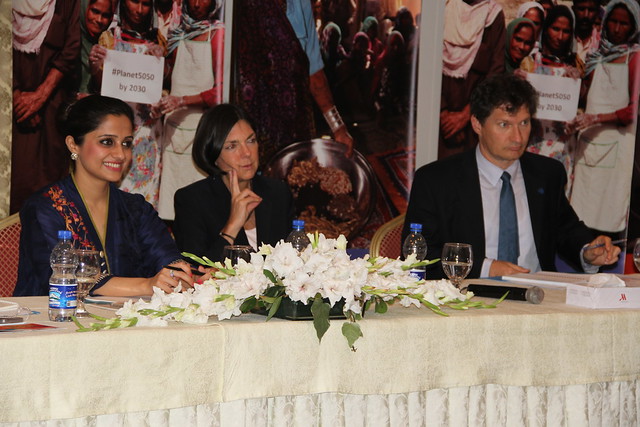
About the UN Secretary-General’s High-Level Panel on Women’s Economic Empowerment
UN Secretary-General’s High-Level Panel on Women’s Economic Empowerment consists of 18 Panel Members chaired by Secretary-General Ban Ki-Moon and having the Honorable Luis Guillermo Solís Rivera (President of Costa Rica) and Simona Scarpaleggia (CEO, IKEA Switzerland) as Co-chairs. Other Panelists include Jim Yong Kim (President World Bank), Christine Lagarde (Executive Director International Monetary Fund), Justine Greening (Secretary of State for International Development UK) and Guy Ryder (Direct General, and International Labor Office) amongst other prestigious leaders from the international development and political space. Over the course of one year the Panel will devise a framework to close large, pervasive and persistent gender gaps in the world of work. The Panel Secretariat is hosted by UN Women, and is backed by the World Bank Group and the Government of the United Kingdom; the Panel is scheduled to hold its next meeting in June 2016.
For more information:
Please contact: Faria Salman
Strategic Management and Partnerships Officer & Communications Focal Point for UN Women Pakistan
Email: [ Click to reveal ]